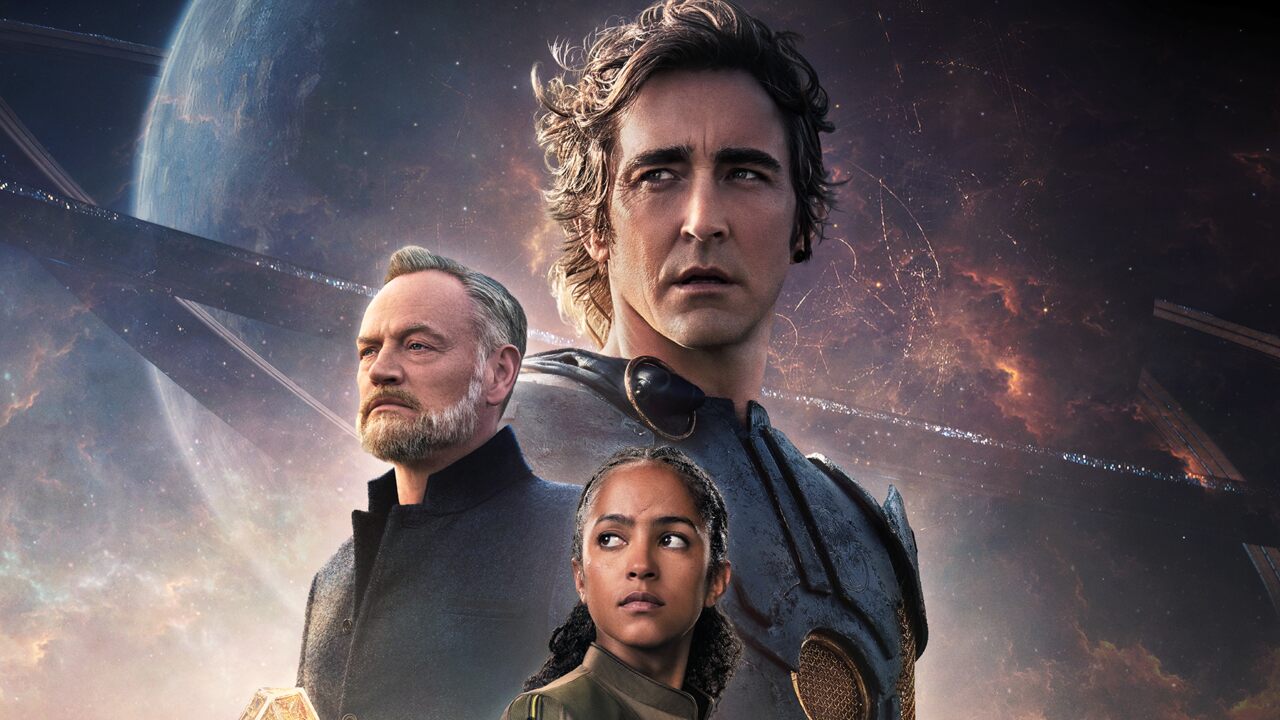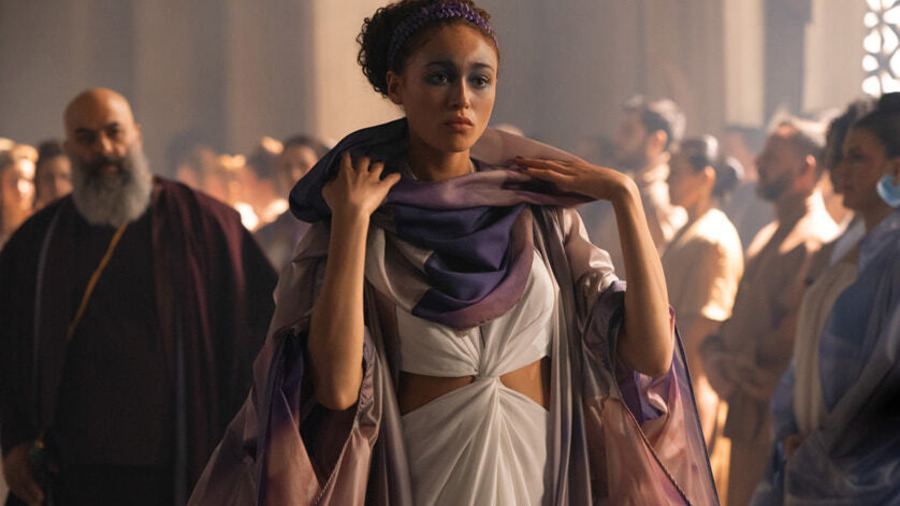
In its second season, Foundation comes across less like an inspired epic and more like a Marvel-style project. If the DC/MCU machine has multiverses that can be exploited to bring back fan-favorite figures, Foundation has advanced gadgets and complicated sci-fi jargon to reverse the death of a character. It seems as if when the scope of a story reaches beyond universes, nothing ever feels final or poignant. There is a scene in the second season of Foundation where someone's execution is presented as a jokey moment. In this same scene, we learn about a "body swap" object. This event somewhat establishes how the other death-related scenarios are handled here. There is obviously a pattern. You first see someone taking their last breath during a fatal circumstance, and then some minutes or an episode later, you are told that the person you saw dying actually made it out alive because of something or the other.
Hari Seldon (Jared Harris) is definitely one of those characters. He is the Loki of Foundation, given how often he emerges alive after facing death. One of the strengths of Foundation's first season was that it contained some solid tragic incidents. The highlight obviously was that scene where Brother Dawn (Cassian Bilton) was killed by Demerzel (Laura Birn). We were shocked because it was all unpredictable. When Dawn, with tears in his eyes, hugged Demerzel, you saw them as mother and son. You thought Dawn's life would be spared after a heated discussion between the other two brothers. But then, Demerzel suddenly twisted Dawn's neck, and our hearts stopped beating for a second. Nothing in the second season comes close to this moment.
When a man meets his husband after many years, we don't participate in their happiness because we are introduced to them a few minutes before this union. A flashback involving Hari and Yanna (Nimrat Kaur) is not moving. Rather it's merely used to fill in the blanks. There were some emotional scenes later during the ninth and tenth episodes, but I was quite exhausted by the time I reached there. Still, if I ignore my tiredness, the sentimentality (two men sharing a drink while awaiting their spaceship's destruction) is undercut by the need to establish future events. The big bad villain gets a scene in the end that looks like a post-credit scene from an MCU film.
Many viewers will undoubtedly praise the visual effects. Foundation undeniably is one of those few productions that expertly uses computer graphics to astonish the audience. However, not every frame fills you with admiration. There are moments where the background appears artificial or like a beautiful screensaver. Nevertheless, even at its worst, Foundation never truly looks ugly. The images are pretty and easy on the eyes.

The actors, too, give impressive performances. Birn really behaves like a mechanical machine. She has firm control over her expressions and delivers every emotion with a sufficiently hardened face as if something within her is stopping her from becoming fully human. Pace makes Brother Day a suave villain who likes to be the smartest person in any room. He gets a powerful closeup as he watches the destruction of a planet. Lou Llobell and Leah Harvey get more screen time in the second season, and their characters develop a terrific chemistry that has a painful pay-off (the sadness, alas, evaporates within seconds as the show is focused more on moving forward). Harris oozes so much charisma that you instantly understand why so many people became his worshipers. Ella-Rae Smith, as Queen Sareth, is one of the new additions to the cast. Brother Day decides to marry her, which makes you wonder: If the Cleon clones originate from a single source, will Sareth be labeled as a "cheating wife" if she ends up making out with either Dawn or Dusk?
Anyway, unlike the first season, Foundation Season 2 doesn't continuously move between different timelines. It's much more "cleaner." It's also less intimate and more spectacle-driven. You can pause any scene, take a screenshot, and put it as wallpaper on your computer. It's the kind of show where a warning regarding someone's demise in the future feels not affecting but like a set-up for something significant. What's more, the world of Foundation Season 2 doesn't always look expansive or imaginative, for that matter. It can often seem merely functional. For instance, Salvor (Harvey), Gaal (Llobell), and Hari come across people in white clothes who look like the cult members you saw in Midsommar. They have mind control-type powers, which are used to create obstacles for the characters. It's the kind of thing we have seen a million times before, and this thread offers scant surprises.
The second season of Foundation contains some solid yet unoriginal sequences. I enjoyed someone's rescue from execution and explanation concerning how the name "Hober Mallow" appeared on a structure. In the end, you walk away from Foundation thinking that so much money has been spent on it to make it visually desirable. If only a considerable amount of energy had been directed towards the writing to infuse it with creative radiance.
Final Score- [7/10]
Reviewed by - Vikas Yadav
Follow @vikasonorous on Twitter
Publisher at Midgard Times
Note: All ten episodes of Season 2 are screened for this review.
Premiere Date: July 14, 2023, on Apple TV+ with the first episode, followed by one episode every Friday.
Hi Everyone, after a due consideration, we have decided that we will be open for donations to help us in managing our website. We will be greatful for any kind of amount we receive. Thanks!
— Midgard Times 🎬 (@Moviesr_net) January 4, 2026
PayPal- [email protected] pic.twitter.com/DlNNz5Npm5
Get all latest content delivered to your email a few times a month.
Bringing Pop Culture News from Every Realm, Get All the Latest Movie, TV News, Reviews & Trailers
Got Any questions? Drop an email to [email protected]